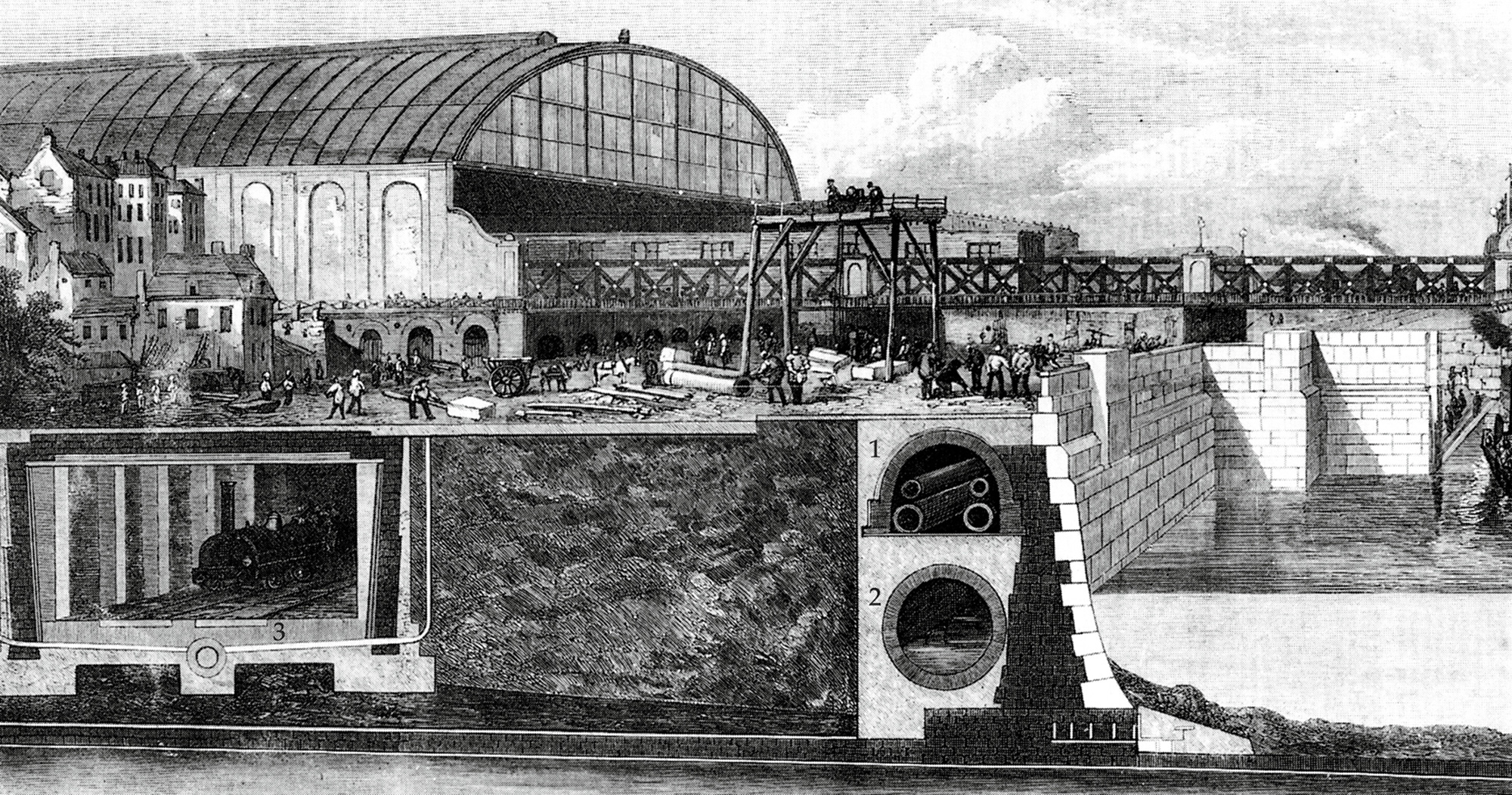Water Foul
London’s Great Stink of 1858
Stassa Edwards

By the summer of 1858, the stench in London was unbearable. The River Thames, long the dumping ground of human, animal, and industrial waste, could no longer bear the refuse of London’s nearly two million residents. The river had always been dirty—even today its stale smell is synonymous with London. Its meandering form must have made it seem like the perfect dump site and, from the time of the Roman founding of the city some eighteen hundred years prior, Londoners had thought little of tossing their rubbish in the river. Perhaps they thought no one would notice, or that the waste would be pulled to sea; perhaps they didn’t think. But in the summer of 1858, the Thames itself finally noticed. That summer was unusually hot—some estimate the hottest on record—and the layers of shit stewed in the sun. In protest, the river overflowed and released an odor so unbearably fetid that Londoners dry-heaved and vomited in the streets: that summer was dubbed “The Great Stink.”
The Great Stink drove the business of England to a malodorous halt. Newspapers described “men struck down with the stench, and all kinds of fatal diseases, up-springing on the river’s banks” and Parliament, sitting in its posh new building on the Thames, turned entirely to solving the smell. The Great Stink was a potent reminder of the frailty of Britain’s power—London was Europe’s largest metropolis and the edges of Britain’s empire were ever expanding, and yet the business of empire could be interrupted by a downright primitive system of waste removal.
But the Great Stink also spoke to the very limits of urban modernity. Only seven years prior, in 1851, England had held the Great Exhibition where it showcased its expansive power and knowledge. Visitors to the exhibition were reassured that Victorian England alone held the monopoly on the greatest advances in science and medicine. Now, as Charles Darwin was frantically working on The Origin of Species, racing against competitors to get the book to press, and Henry Gray was publishing his compendious anatomy book, Londoners were gagging at the smell of their own refuse. The Great Stink was, perhaps, an unwelcome metaphor for London’s paradoxical modernity: it was the epicenter of a world power, its citizens could fundamentally change human knowledge, but all of this could be ended by a plumbing problem. And that is exactly what the Great Stink was: an epic plumbing catastrophe nearly two thousand years in the making.
• • •